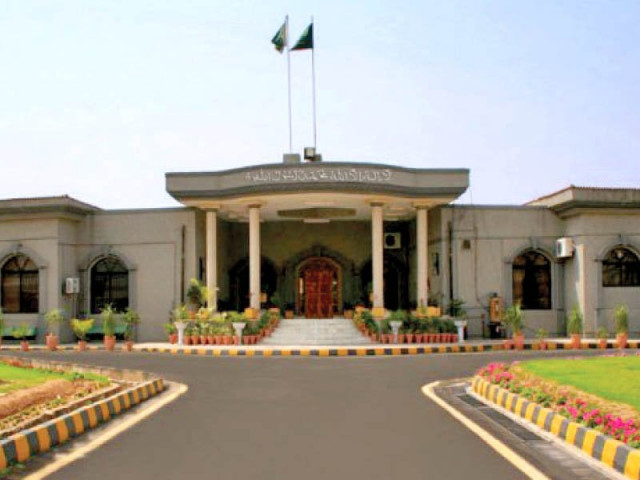SJC trial: IHC judge goes to apex court to request open trial
Judge claims he has nothing to hide; rights are infringed by ‘secret trial’

PHOTO: EXPRESS
IHC judge Shaukat Aziz Siddiqui, who is facing SJC proceedings for alleged misconduct, filed a constitutional petition in the apex court on Thursday under Article 184 (3), making the council and the federation respondents. He will be represented by lawyers Makhdoom Ali Khan and Hamid Khan.
Earlier, the SJC on May 18 dismissed his plea seeking an open trial. The council was scheduled to resume hearing the misconduct case on October 10.
Supreme Judicial Council looks into LHC judge’s misconduct
But the IHC judge’s 14-page constitutional petition has requested the SC to declare that SJC’s May 18 order was passed without lawful authority. He also pleaded the court to suspend SJC proceedings against him till a decision is made on his petition.
The judge also requested that the SJC be told that he has a fundamental right to insist that an inquiry into his conduct be conducted publicly.
The petition states that the council’s May 18 order, by upholding paragraph 13 (1) of the SJC Procedure of Inquiry 2005, which permits the proceedings of the council in camera, violates Article 10-A of the Constitution, adding that Article 10-A provides every citizen with the right to a fair trial and due process.
“It is not in the interests of the judiciary if the proceedings are held in camera. It will damage the image of the institution. The guardians of justice cannot deny their brethren the protection of a public hearing and due process,” says the petition.
The petition states that the IHC judge has nothing to hide as his dignity is not compromised if the proceedings are held in camera. Likewise, it is stated that due process requires that a person must be given a reasonable opportunity to defend himself, adding that this is not guaranteed in a secret trial.
No reference filed against Justice Khosa: AGP
“There is no greater protection than free speech and a free press for the independence of constitutional institutions,” it is further submitted.
Likewise, the petition contends that in-camera proceedings violate articles 8, 18 and 25 of the Constitution.
“Under Article 210 (2) of the constitution, the provisions of Article 204 contempt of court are applicable to the proceedings before the SJC. This gives it powers akin to those of a high court or indeed the Supreme Court. The status of SJC is thus similar to that of a constitutional court. It is indeed an institution created by the constitution. Anybody vested the powers to punish for contempt is for all practical purposes a body which determines the right and liabilities and has a duty to act fairly,” it states.
The petition also contends that a public hearing will be advantageous for witnesses to avoid perjuring themselves.
It is also submitted that there is no avenue for appeal or revision against the SJC’s final report, adversely affecting the judge and leaving him without remedy. Even the president has no effective role in this matter, the petition says, adding that the entire career, reputation and future of the judge depend on the report.
Likewise, it is contended that the SJC proceedings are in nature of a quasi-criminal trial. “If a judge is removed from office, he is stripped of office and deprived of his pension rights and other benefits. It cannot, therefore, be said that the proceedings before the SJC have no bearing on the rights of the petitioner,” says the petition.
SJC examines 26 misconduct complaints against judges
Earlier, the council issued a 12-page order on May 18 observing that it is in the larger interest of the judiciary that proceedings are not conducted in open court, as the issue brought before the SJC and the allegations levelled may ultimately prove false, frivolous or vexatious.
The council had also observed that the SJC does not determine the civil or criminal liabilities of a judge against whom the proceedings are being conducted, therefore, the request for an open trial of the proceedings on the touchstone of articles 4, 10-A and 25 of the Constitution is not well-founded.



















COMMENTS
Comments are moderated and generally will be posted if they are on-topic and not abusive.
For more information, please see our Comments FAQ